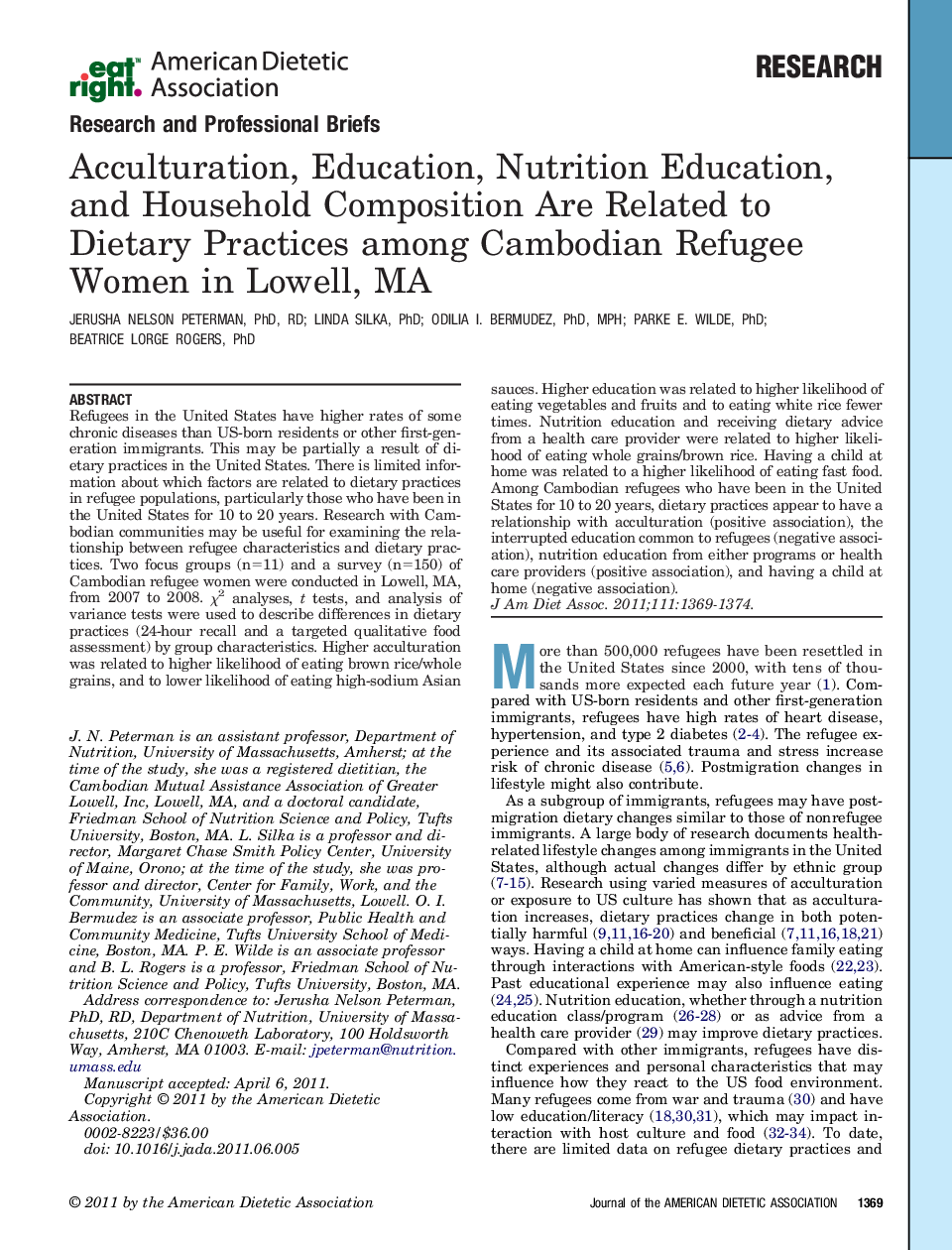| کد مقاله | کد نشریه | سال انتشار | مقاله انگلیسی | نسخه تمام متن |
|---|---|---|---|---|
| 2653896 | 1139793 | 2011 | 6 صفحه PDF | دانلود رایگان |
Refugees in the United States have higher rates of some chronic diseases than US-born residents or other first-generation immigrants. This may be partially a result of dietary practices in the United States. There is limited information about which factors are related to dietary practices in refugee populations, particularly those who have been in the United States for 10 to 20 years. Research with Cambodian communities may be useful for examining the relationship between refugee characteristics and dietary practices. Two focus groups (n=11) and a survey (n=150) of Cambodian refugee women were conducted in Lowell, MA, from 2007 to 2008. χ2 analyses, t tests, and analysis of variance tests were used to describe differences in dietary practices (24-hour recall and a targeted qualitative food assessment) by group characteristics. Higher acculturation was related to higher likelihood of eating brown rice/whole grains, and to lower likelihood of eating high-sodium Asian sauces. Higher education was related to higher likelihood of eating vegetables and fruits and to eating white rice fewer times. Nutrition education and receiving dietary advice from a health care provider were related to higher likelihood of eating whole grains/brown rice. Having a child at home was related to a higher likelihood of eating fast food. Among Cambodian refugees who have been in the United States for 10 to 20 years, dietary practices appear to have a relationship with acculturation (positive association), the interrupted education common to refugees (negative association), nutrition education from either programs or health care providers (positive association), and having a child at home (negative association).
Journal: Journal of the American Dietetic Association - Volume 111, Issue 9, September 2011, Pages 1369–1374
